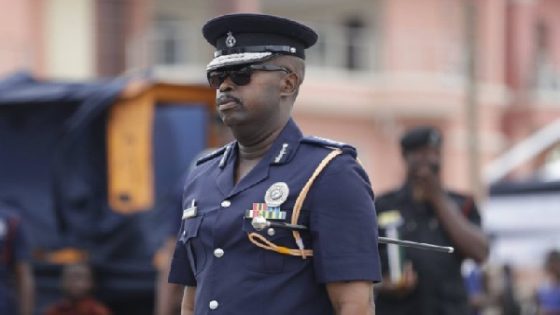In a shocking revelation, notorious Kumasi-based armed robber ‘2PM’ shared his harrowing experience at the hands of retired Commissioner of Police Kofi Boakye. This incident, which took place years ago, highlights serious concerns about police conduct in Ghana.
- 2PM recounts police brutality experience.
- Kofi Boakye was Ashanti Regional Commander.
- Severe beatings caused partial blindness.
- Abuse included loss of bowel control.
- Officers laughed during the assaults.
- 2PM's ordeal highlights police misconduct.
On February 20, 2025, a viral TikTok video captured ‘2PM’ recounting the brutal treatment he endured after his arrest, raising questions about police brutality and justice in the country.
Understanding Police Brutality: The Case of ‘2PM’ and Kofi Boakye
How far can police officers go in their duty to uphold the law? ‘2PM’s’ story raises critical questions about the limits of police authority and the treatment of suspects. His account reveals a troubling side of law enforcement that many in Ghana and beyond may not be aware of.
The Impact of Police Abuse on Society and Justice
Police abuse can have far-reaching consequences, not just for the victims but for society as a whole. When law enforcement crosses the line, it undermines public trust and the justice system. Here are some key points to consider:
- Victims of police brutality often suffer long-term psychological and physical effects.
- Incidents like ‘2PM’s’ can lead to public outrage and calls for reform.
- Accountability is crucial for restoring faith in law enforcement.
- Such cases can spark national and international discussions on human rights.
Examining the Role of Police Leadership in Ghana
Leadership within the police force plays a significant role in shaping the culture of law enforcement. Kofi Boakye’s actions as a leader raise questions about the standards set for officers under his command. Effective leadership should promote respect for human rights and discourage abuse of power.
Public Response and Demand for Reform
The public’s reaction to ‘2PM’s’ story has been one of shock and anger. Many are calling for reform within the Ghana Police Service to prevent such incidents from happening in the future. This outcry reflects a growing demand for transparency and accountability in policing practices.
Ultimately, ‘2PM’s’ experience serves as a critical reminder of the need for ongoing dialogue about police conduct and the importance of protecting the rights of all individuals, regardless of their past.

































